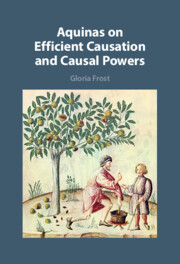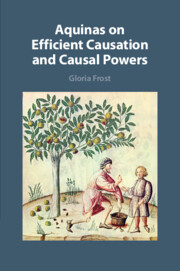Aquinas on Human Self-Knowledge
Self-knowledge is commonly thought to have become a topic of serious philosophical inquiry during the early modern period. Already in the thirteenth century, however, the medieval thinker Thomas Aquinas developed a sophisticated theory of self-knowledge, which Therese Scarpelli Cory presents as a project of reconciling the conflicting phenomena of self-opacity and privileged self-access. Situating Aquinas's theory within the mid-thirteenth-century debate and his own maturing thought on human nature, Cory investigates the kinds of self-knowledge that Aquinas describes and the questions they raise. She shows that to a degree remarkable in a medieval thinker, self-knowledge turns out to be central to Aquinas's account of cognition and personhood, and that his theory provides tools for considering intentionality, reflexivity and selfhood. Her engaging account of this neglected aspect of medieval philosophy will interest readers studying Aquinas and the history of medieval philosophy more generally.
- Uncovers a sophisticated theory of self-knowledge in one of the most influential medieval thinkers
- Investigates the mid-thirteenth-century debate on self-knowledge more generally
- Shows how Aquinas's theory of self-knowledge is integrated with other aspects of his cognition theory
Reviews & endorsements
"… indispensable to any future study of self-knowledge in Aquinas. Its virtues include an exhaustive review of the scholarly literature on self-knowledge, a detailed analysis of each component of Aquinas’s theory, and proposed resolutions to each interpretive problem. [This book] will spark a new debate over the centrality of self-knowledge in Aquinas’s thought."
Carl N. Still, Journal of the History of Philosophy
Product details
December 2013Hardback
9781107042926
254 pages
231 × 160 × 20 mm
0.51kg
Available
Table of Contents
- Introduction
- Part I. Historical and Textual Origins:
- 1. The development of a medieval debate
- 2. The trajectory of Aquinas's theory of self-knowledge, 1252–72
- Part II. Phenomena and Problems:
- 3. Perceiving myself: the content of actual self-awareness
- 4. Perceiving myself: is self-awareness an intuitive act?
- 5. The significance of self-presence: habitual self-awareness
- 6. Implicit vs explicit self-awareness and the duality of conscious thought
- 7. Discovering the soul's nature: quidditative self-knowledge
- 8. Self-knowledge and psychological personhood
- Conclusion.




